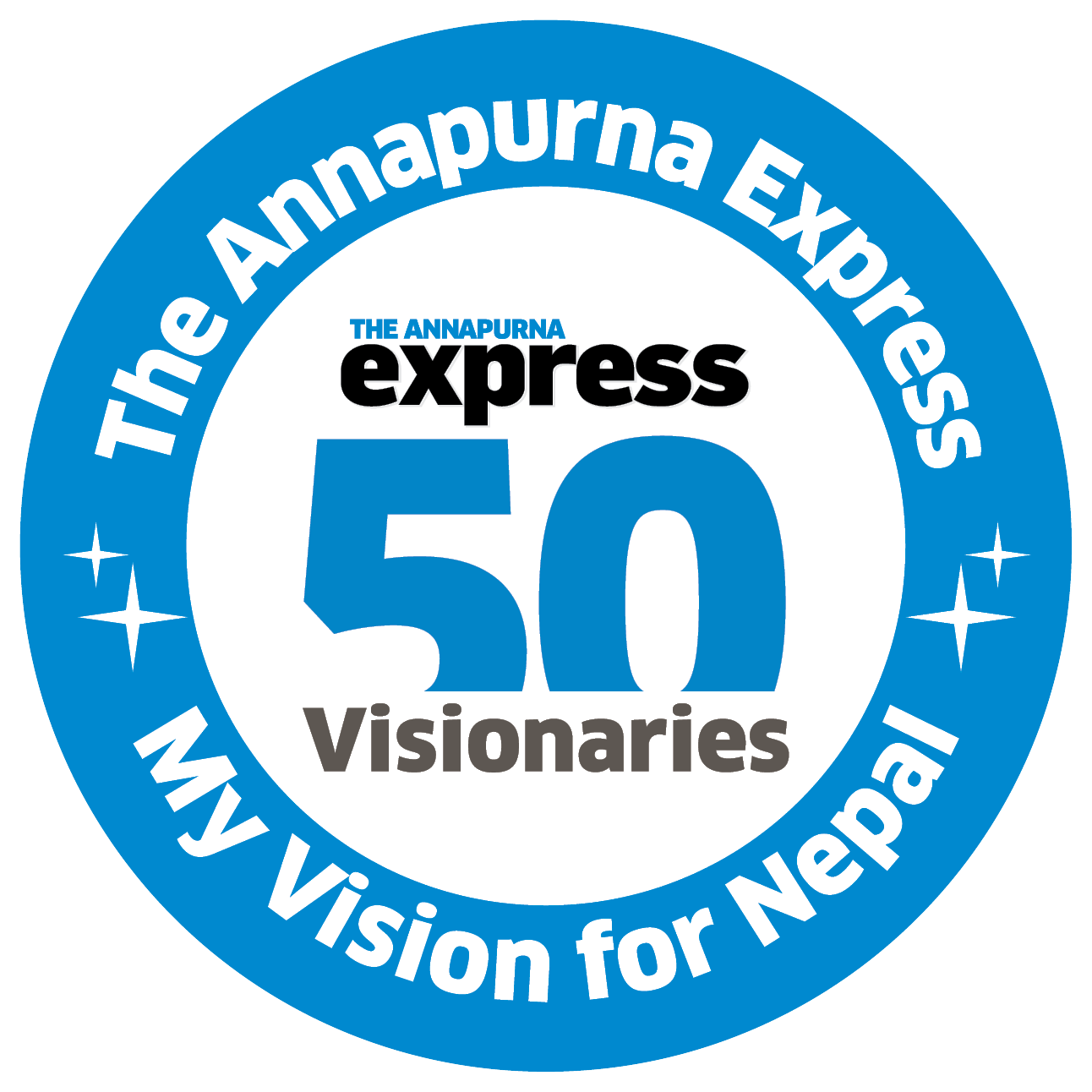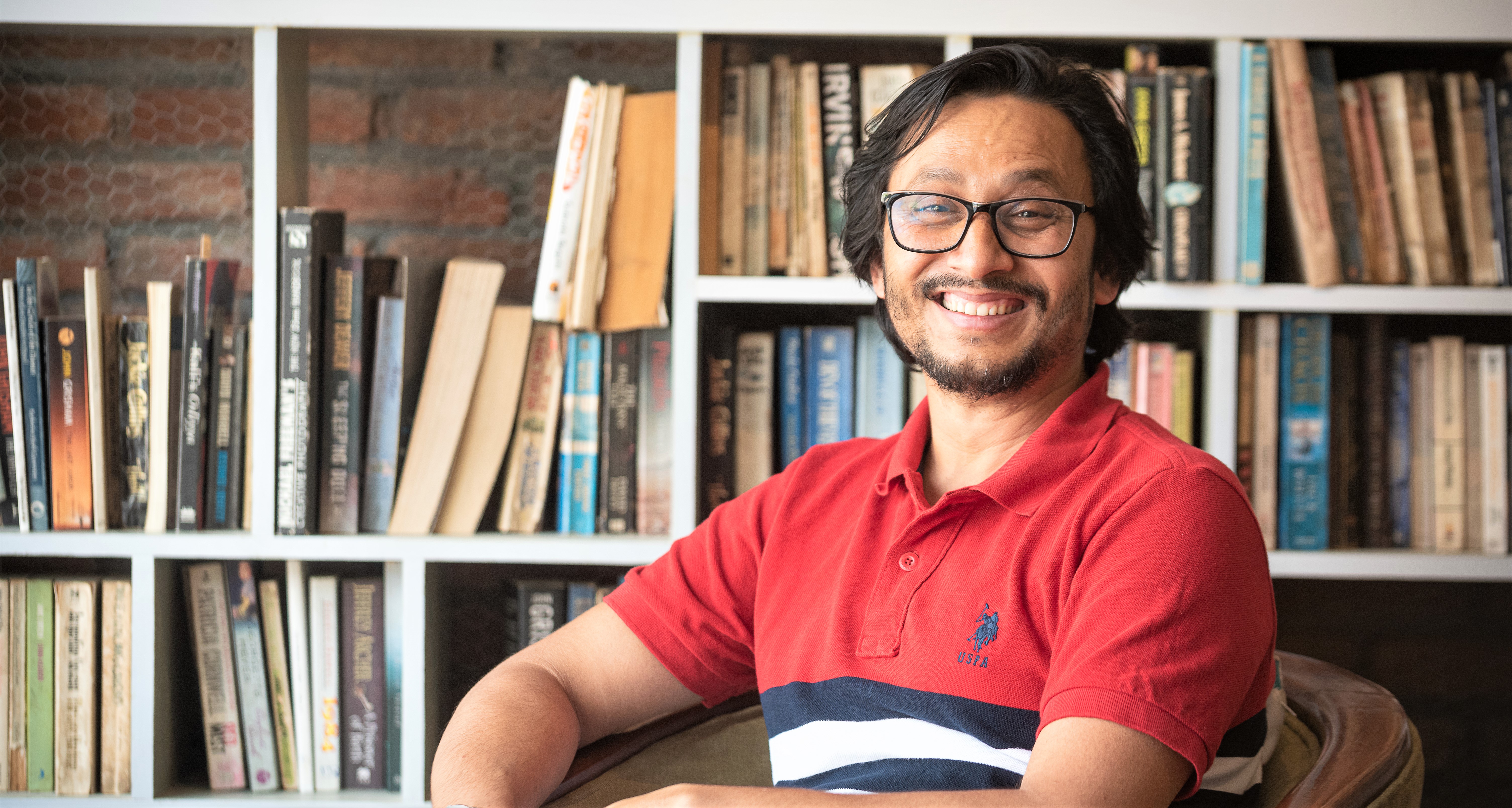My Vision for Nepal | Establish towns in the mountains

Establish towns in the mountains
Three ways to realize the vision:
1) Modernization of agriculture.
2) More practical education.
3) Financing of local entrepreneurs by banks.
I have a simple vision to develop Nepal, especially the mountainous region. My vision is to develop towns in the mountains where all services are available—as in Kathmandu—as well as jobs, so that our youths don’t have to labor in foreign lands.
To realize this vision, we have to work from the grassroots. As we all know, Nepal is an agricultural country and there can be no development here without developing agriculture, and for this our agricultural practices must be modernized. The government should hire top-level experts and work with concrete plans.
Agriculture modernization must not include the use of chemical pesticides. Rather, we need scientific ways of planting and harvesting. We are rich in water resources but still unable to irrigate our farms. Scientific and modern agriculture will solve that problem too.
Second, our education system lacks a lot of things. What I think is, our education system has also halted our progress in many ways. Hence education should include job training and not just the same old classical subjects—it must be practical. We won’t get anywhere with the outdated curricula that simply don't contribute to our society.
After we modernize agriculture and improve our education, we’d need investments. For this, the government and concerned authorities should encourage banks to finance local entrepreneurs and endeavors in order to utilize their knowledge. We don’t need large investments, and lack of them should not stop us from productive development.
The Himalayas of Nepal are full of micro-climates. We have a comparative advantage as we can grow anything here. We can grow fruits and vegetables when it is off-season for them elsewhere and then export them. This will give Nepal much-needed revenue.
Also read: Sujeev Shakya | A complete transformation of Nepal
I have had this idea for a long time, ever since my days working in the mountains. Further, we can import skills. Retired artisans from other mountain areas can be brought in to help. One idea would be to bring the Harris Tweed weavers from the Hebrides to help develop the ‘allo’ cloth industry. There are Scottish universities that would help us with this. Our leather workers would greatly benefit from retired, skilled cordwainers coming to help young craftsmen.
Progress in the development of these skills is hampered by caste discrimination. The government should step in here by giving awards not only to people of letters but also to people who have actual skills. For example, look at how we look down on plumbers. Yet without proper plumbing and sanitation, no town, city or village can thrive.
Moreover, I dream that Nepal has enough electricity for each home, that every home gets running water as well as a microwave and washing machine to take the drudgery out of people’s lives. I think with proper governance, this should be achievable within the next two decades, especially with mini and micro hydel. Then my vision would be realized and we would no longer be colonized by development aid. We own the most precious resource in the world, the waters of the Himalayas.
People in power forget that tourists come here to see our natural beauty. So we must take care of our natural landscapes. All the infrastructure works should be planned accordingly. For that, we should stop investing in big dams that destroy the scenery of Nepal. The answer is a mini-micro hydel that can be handled without imported equipment. It was a Nepali who invented the peltric set—a water-powered turbine for mountainous regions—and yet we were the last to take advantage of it. We have to stop idolizing ‘foreign’ things and make and buy local products. This way, my vision would be fulfilled.
All this takes governance and not dictatorship or ‘rule’. The key is in our hands and we should vote accordingly. Many Nepalis do not know the power of the vote, so again, this essential thing should be kept in the primary school curriculum. It is a part of political literacy—a must-learn thing.
Quick Questions:
Which author inspired you to start writing?
Emily Brontë.
Who is your favorite Nepali writer?
Dhruba Chandra Gautam.
What are three of your all-time favorite books?
‘Les Misérables’ by Victor Hugo, ‘Wuthering Heights’ by Emily Brontë, and ‘Great Expectations’ by Charles Dickens.
related news
My Vision for Nepal | See Nepali women’s football team lift SAFF championship
April 18, 2022, 9:43 p.m.
My Vision for Nepal | A top global tourist destination
April 11, 2022, 6:19 p.m.
My Vision for Nepal | A clean country built on sustainable and socially inclusive waste management
April 5, 2022, 12:42 a.m.
My Vision for Nepal | Internationally acclaimed Nepali movies
March 28, 2022, 8:02 p.m.
My Vision for Nepal | Equal respect for all genders: male, female and queer
March 21, 2022, 7:11 p.m.
My Vision for Nepal | Economic growth and socio-economic development
March 14, 2022, 2:29 p.m.
My Vision for Nepal | Zero trafficking of Nepali people
March 7, 2022, 5:13 p.m.
My Vision for Nepal | A healthy, educated, and hospitable country
Feb. 28, 2022, 7:47 p.m.











Comments